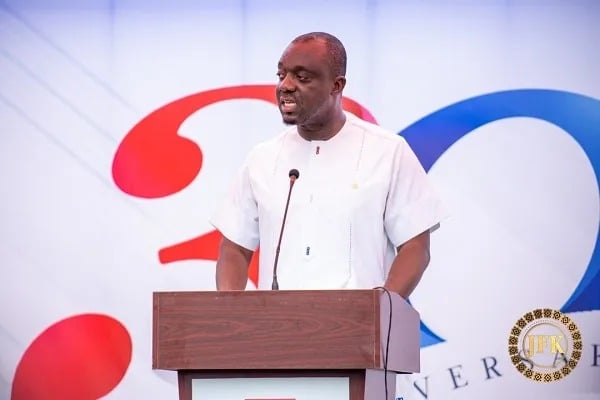On October 17, 2023, the Majority Caucus of the New Patriotic Party (NPP) announced their decision to boycott parliamentary proceedings in response to Speaker of Parliament, Rt. Hon Alban Bagbin’s ruling, which declared four parliamentary seats vacant. This declaration resulted in the removal of four MPs, shifting the NPP’s status from the governing Majority to the Minority in Parliament. The decision stemmed from the caucus’s view that the Speaker’s ruling was politically motivated and unjust, prompting them to take a stand against what they described as an affront to their party and its members.
In a subsequent statement released on October 18, NPP General Secretary Justin Kodua Frimpong expressed the party’s unwavering support for the Majority Caucus. The release emphasized that the party stands united with the caucus in their protest against the perceived injustice. The statement highlighted that the party’s commitment is not just to defend their current position but also to advocate for their members who may feel disenfranchised by recent developments in Parliament. This show of solidarity indicates the significance the NPP places on maintaining its integrity and representation in legislative affairs.
Furthermore, the NPP urged its Members of Parliament who are seeking re-election to utilize the boycott period effectively by focusing on their campaign efforts within their respective constituencies. The party’s leadership underscored the importance of grassroots campaigning as a strategic move to strengthen their position ahead of the upcoming general elections scheduled for December 2024. By encouraging its members to engage with constituents during this time, the NPP aims to galvanize support and reinforce their commitment to regaining a majority in Parliament.
The party’s statement also reflects a broader strategy aimed at overcoming potential setbacks from the recent parliamentary changes. The NPP is acutely aware that the path to reclaiming their majority status is dependent on securing additional parliamentary seats in the next election. Thus, they maintain that proactive campaigning is critical in ensuring a favorable outcome in the elections, positioning themselves as a viable party capable of leading the nation effectively.
The gravity of the situation cannot be underestimated, as the loss of parliamentary seats not only affects party representation but also undermines the NPP’s legislative capabilities. This context amplifies the urgency of their call to action, as the party seeks to rebuild momentum and solidarity among its ranks amidst the internal turmoil caused by the parliamentary ruling. The response from both the Majority Caucus and the NPP leadership illustrates a concerted effort to consolidate their influence and present a united front as they navigate the complexities of Ghana’s political landscape.
In conclusion, the NPP’s current challenges serve as a defining moment for the party ahead of the 2024 general elections. By supporting the Majority Caucus’s boycott, the NPP is asserting its commitment to parliamentary integrity and member advocacy while simultaneously laying out a strategic plan to reconnect with voters and recover its standing. As political dynamics continue to evolve, the effectiveness of these efforts will ultimately determine the NPP’s success in regaining both legislative power and public trust in the upcoming political contest.














